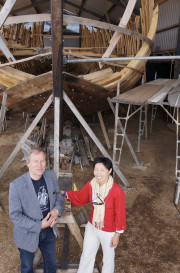In Animal Care in Japanese Tradition: A Short History (Association for Asian Studies, 2022), Brecher offers a brief overview of animals in Japanese culture and society from ancient times to the 1950s. Brecher questions common assumptions about the treatment and care of animals in Japan, correcting ahistorical understandings of the human-animal relationship that have gained widespread acceptance.
The subject itself is fascinating in its own right, but learning about it carries an additional benefit: it helps us challenge two pervasive assumptions about Japan. The first is that Japan differs fundamentally from other, particularly Western, nations. This premise reinforces the view that cultural differences carry greater historical importance than similarities. The second assumption is that societal changes connected to Japanese modernization are of greater historical importance than continuities, a notion that foregrounds modern Japan’s departure from its native traditions and its assimilation of Western ones. This volume’s historical overview of Japan’s relationship with animals does not dwell at length on these points, but its discussion of traditional animal care does enable us to revisit and reassess these issues in a new light. It also allows us to scrutinize Japanese tradition and interrogate ahistorical claims about Japan’s culturally endemic “love” and empathy for the natural world. Departing from existing scholarship on the subject, the book discovers theoretical and practical commonalities between “Japanese” and “Western” approaches to animal care and shows how this partially shared tradition facilitated Japanese modernization.
Jingyi Li is a PhD Candidate in Japanese History at the University of Arizona. She researches about early modern Japan, literati, and commercial publishing.
Learn more about your ad choices. Visit megaphone.fm/adchoices
Support our show by becoming a premium member! https://newbooksnetwork.supportingcast.fm/anthropology
Visit New Books in Anthropology for the podcast. There is something wrong with this RSS-feed. Lorenz, antropologi.info
